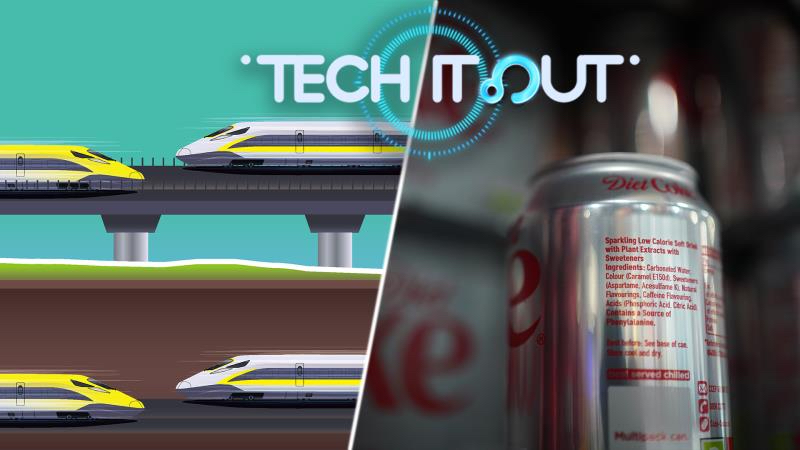02:47

China's FAST telescope
For the first time, Chinese scientists have heard the faint ripples caused by the motion of black holes that gently stretch and squeeze our universe. The discovery was made by the FAST telescope. The findings are significant, as the nanohertz gravitational waves help scientists understand the formation of the universe's structures and track the history of black holes and galaxies that merge around us.
China's bullet train
A breakthrough for China's bullet train, reaching a record speed. The CR450, from Fuqing to Quanzhou in Fujian Province, has reached a speed of 453 kilometers per hour in test runs. The tests were carried out on the Meizhou Bay cross-sea bridge, one of the major parts of the Fuzhou-Xiamen high-speed railway in Fujian province. The CR450 science and technology innovation project is one of the key national science programs, outlined in China's 14th Five-Year Plan.
Food security
A popular sweetener could be declared a cancer risk to humans! Aspartame is used in thousands of products worldwide, including diet fizzy drinks, chewing gum, breakfast cereals and cough drops. But now, the WHO's cancer research team has raised a red flag, labeling the sweetener as "possibly carcinogenic to humans." When the ruling comes out, consumers, food companies, retailers and restaurants need to decide whether to fight back or find alternatives.
Climate change
A new climate model could be in the pipeline. The Earth Virtualization Engines project is a digital infrastructure for climate modelling that exploits the latest advances in high performance computing and artificial intelligence architectures. It aims to achieve a global climate prediction and information system that can help vulnerable countries anticipate the consequences of climate change. The draft blueprint was mooted at the ongoing Berlin Summit.